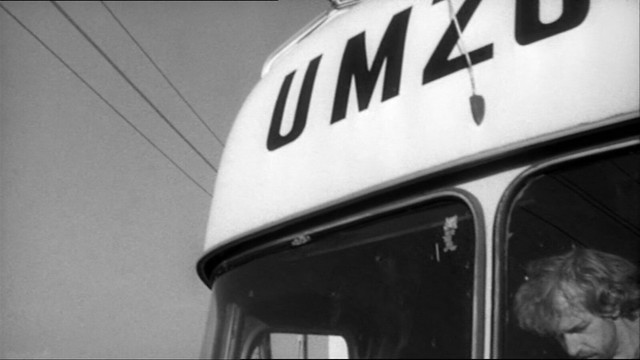
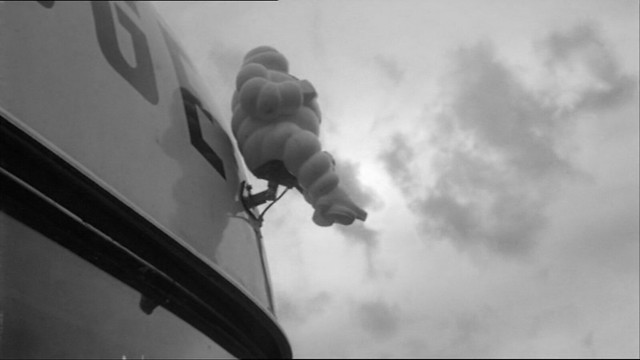
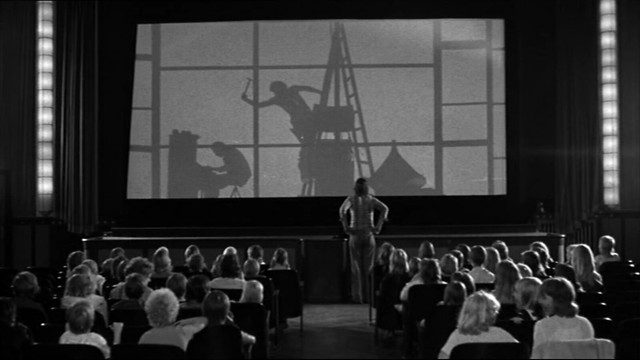




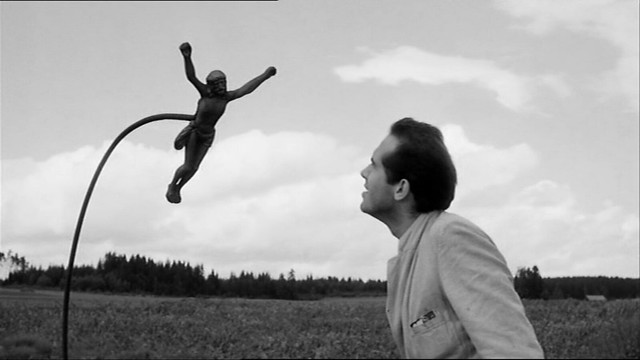
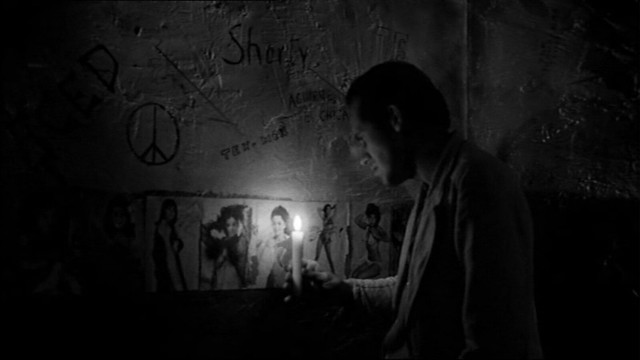
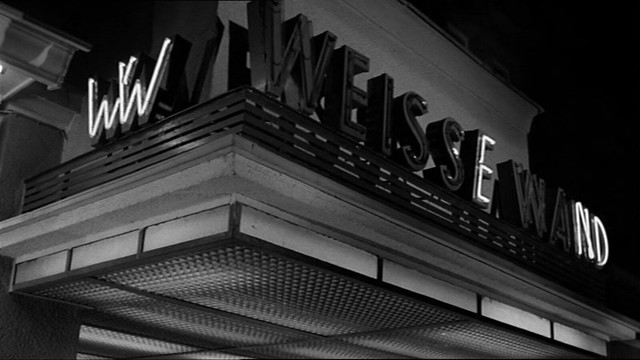
A man drives his volkswagon bug into a lake while another man, preparing his morning shave in his van, looks on. The man in the volkswagon emergies from the water with a dripping suitcase, strikes up the conversation with the man with a van who happens to be a traveling film reel deliveryman/projectionist. They take off together in the van. So starts Wenders' ultimate road movie KIngs of the Road.
Clocking at 2 hours 48 minutes, this leisurely paced, sort of midlife crises movie encompasses a lot of Wenders' preoccupation in his long illustrious filmography - desire to love, Germany's war past, rootlessness, American rock'n'roll, aversion to sex and violence in films, etc.
It would be a hard sell in this day and age to pitch the idea of where two complete strangers going on a long journey together without revealing their backgrounds or their innermost thoughts. But that's exactly what this film is - short on backstories, mutual unspoken understanding of heterosexual male anxiety in the material world Germany in the mid 70s.
It is revealed in the middle that Robert the Kamikaze (because he rammed his car directly into water, played by Hanns Zischler) who has left his wife and is afraid to call her, has also some unfinished business with his type-setter father, whom he visits. Then there is Bruno Winter (Rüdiger Vogler) the traveling projectionist and recurring character in many of Wenders' films. However rootless, traveling from small town to small town, floating through life, Winter has no worries in the world. He is also a walking contradiction - He wants to connect and love but he also wants to be left alone. He visits where he grew up, a dilapidated house on the river Rhine, and while kamikaze sleeps, he cries on the edge of the river.
Kings of the Road is a snapshot of Germany's post-war generation from a male perspective. They are silent, emasculated types who has trouble expressing their feelings. There is no conviction in Robert exclaiming "Yanks have colonized our subconscious!" while listening to rock'n'roll, either. It's that mutual silence and understanding that bond them together.
Oddly, for a film about projectionist, Kings isn't about cinema. It's more to do with changing times. Typesetter, projectionist, these dying professions are regarded fondly with much melancholy. It ends with Winter visiting a shuttered theater. The owner laments that her late father would not allow to show 'whatever passes as film nowadays'. 'Film used to mean art of seeing.' A lot of pregnant silences in Kings of the Road. Things left unspoken. Art of seeing it is. We see a lot of mundane stuff - casual male nudity, shitting, jerking off, vomiting, making coffee, driving, sleeping, etc. And it's us who needs to find meaning in everyday life.
No comments:
Post a Comment